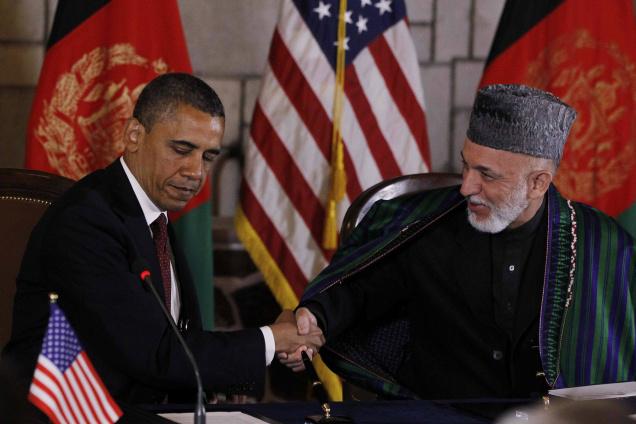May 12: Gunmen stormed a hospital on Tuesday in an ongoing attack in the Afghan capital Kabul, as a suicide blast killed 15 people at a funeral in the country's restive east.
Special forces rescued 80 people including mothers and babies from the Kabul hospital after three gunmen launched a morning assault, killing at least four people, the interior ministry said in a statement.
Heavily armed forces were seen carrying babies wrapped in blankets away from the scene, as the clearance operation continued.
The facility, which has a large maternity ward, is located in the west of the city, home to the capital's minority Shiite Hazara community -- a frequent target of Sunni militants from the Islamic State group.
The flare-up in violence comes as Afghanistan grapples with myriad crises including a rise in militant operations across the country and a surge in coronavirus infections.
A paediatrician who fled the hospital told AFP he heard a loud explosion at the entrance of the building.
"The hospital was full of patients and doctors, there was total panic inside," he said, asking not to be named.
The maternity services at the hospital are supported by humanitarian organisation Doctors Without Borders (MSF).
"Hospitals and health workers must not be attacked. We call on all sides to stop attacking hospitals and health workers," said deputy health minister in the city, Waheed Majroh.
Around an hour later, a suicide bomber killed at least 15 people at the funeral of a local police commander in the country's eastern Nangarhar province, according to provincial spokesman Ataullah Khogyani.
The attacker detonated his explosives in the middle of the ceremony.
Zaher Adel, spokesman for the government hospital in Jalalabad, earlier said 12 bodies had arrived from the blast site and more than 50 people were being treated for injuries.
Amir Mohammad, who was wounded in the blast, said thousands of people had gathered for the funeral, an event which often draws huge crowds in Afghanistan.
The violence comes just a day after four roadside bombs exploded in a northern district of Kabul, wounding four civilians including a child.
The bombings were later claimed by the Islamic State group, according to the SITE intelligence group.
They were just the latest in a string of IS attacks on the capital.
In March, at least 25 people were killed by a gunman at a Sikh temple in Kabul, which was later claimed by the group.
IS is also responsible for an infamous attack in March 2017 on one of the country's largest hospitals, when gunmen disguised as doctors stormed the Kabul building and killed dozens.
In recent months, the jihadist group has suffered mounting setbacks after being hunted by US and Afghan forces as well as Taliban offensives targeting their fighters, but it still retains the ability to launch major assaults on urban centres.
The Taliban have largely refrained from launching large attacks on Afghan cities since February when they signed a landmark withdrawal deal with the US meant to pave the way for peace talks with the Kabul government.
Under the agreement, the Taliban promised not to target forces from the US-led coalition, but made no such pledge toward Afghan troops and have stepped up attacks in the provinces.
The Taliban have denied involvement in both of Tuesday's attacks.






Comments
Add new comment